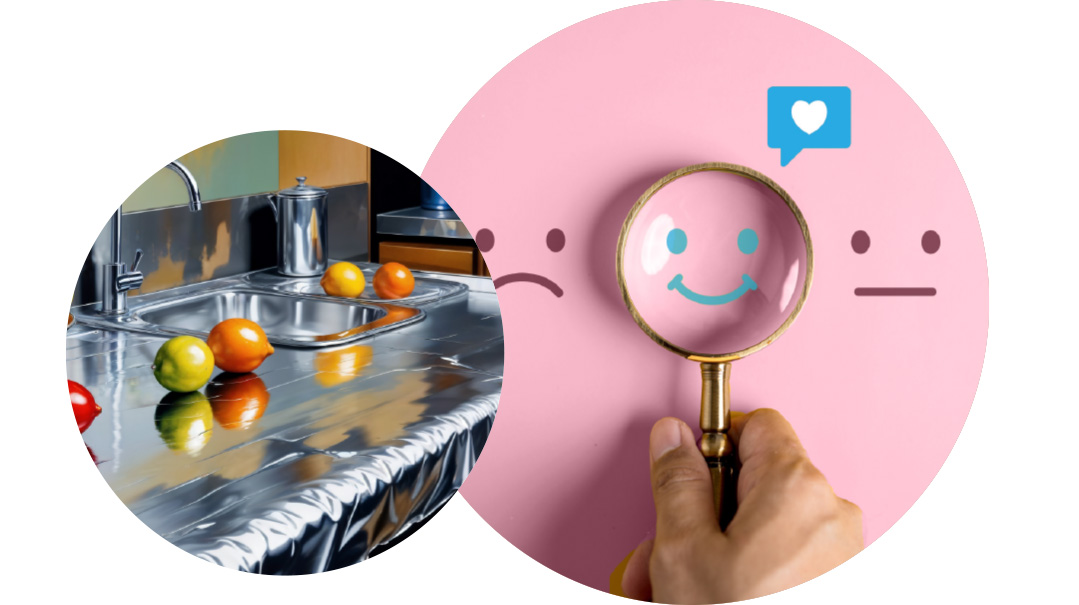Family First Inbox: Issue 861

“It would have been a great lesson in hakaras hatov for your children if you’d managed to write that note”

An Early Start [Tour de Force / Issue 859]
What a delight it was to find an article about Rebbetzin Rochel Stefansky in Family First. I remember the first time I met Rochel in Gateshead Seminary on the first day we arrived. We were both 16 years old (she may have even been slightly younger), but I had definitely never met a girl like her. She walked into sem for the first time, full of self-confidence, dispensing with her older sister’s care, and immediately taking a leadership role in making others feel comfortable.
I was later stunned to discover what a strong work ethic she had. She’d take on office jobs during seminary vacations, something I, a sheltered, unworldly girl, couldn’t even imagine doing.
As for the trips she organizes today, she had an early start on that, too. I well remember how she voluntarily organized bus rides into London and Manchester from Gateshead for hundreds of girls, saving them money, as the train was very expensive. She was so organized and capable; I still see her (in my mind’s eye) walking around with her lists, making sure everything would work out. She’d personally collect the money to pay the drivers, all the while attending all the classes. Nothing was too much for her. And she didn’t just organize the trips; she took total responsibility.
Although I can’t remember the exact circumstances of this particular trip, I do remember a problem cropping up, and Rochel taking us all into her parents’ home right around dawn, making sure we wouldn’t wake her parents, to make a call — no cells at that time — knowing what needed to be done, so all was smoothed out and each girl reached her destination safely.
My favorite memory of this amazing woman is that when she was applying for a teaching job at the end of her third year of seminary, she asked me to prepare her Chumash test lesson with her. I can’t take credit for much. We worked out the Rashi together, but Rochel immediately knew how to make the pasuk relevant to a high school girl’s life and turn the pesukim into a fascinating lesson. No wonder she went on to become the star teacher for girls and women of all ages.
So go for it, Rochel. We wish you the best in all your amazing endeavors — you deserve every success in the world!
Tamar Fischer
Zurich
Normal Family Life [Inbox / Issue 859]
I’m writing in response to the woman who “Learned How to Be Happy” even though she had a difficult mother.
Of course, I wasn’t there, and so I’m not weighing in on this woman’s story, and my comments aren’t personal to her. But I would like to offer my perspective for others who may have similar stories. The commonly experienced ups and downs of life aren’t disorders. The writer tells us that her mother had a hairy canary because she didn’t carry up the laundry basket of folded clothes to her room.
Now, what I’m envisioning is an overworked mother who picked up her daughter’s clothes from the bathroom floor and from behind her daughter’s bed, who sorted, washed, and maybe even ironed, besides completing all the other endless, mindless, exhausting household tasks and who asked her typical-for-the-age, self-involved teenage daughter numerous times to please carry the basket up to her room from the steps so that no one would trip over it, but was ignored.
This triggered a volatile verbal explosion and a rant that her daughter didn’t appreciate her efforts to do laundry and care for the house. Mothers sometimes work too hard, and teenagers are sometimes oblivious. And mothers sometimes explode. This is normal family life. Didn’t anyone read The Berenstain Bears and the Messy Room?
We’re not doing our kids a favor by encouraging them to waggle their fingers at their parents’ parenting skills and to judge them as “often unhappy.” We’re not doing kids a favor by telling them to respond to an occasional rant by mom in the same way they should respond to actual abuse.
Our generation grew up with parents who were war survivors. They loved us fiercely, but they were fragile. We didn’t assess their parenting skills. We didn’t blame our life’s challenges, in adulthood, on our perception of their inadequacies.
And we all “learned to be happy.”
Name Withheld
Where’s the Balance? [Matchquest / Issue 859]
I loved Sara Eisemann’s answer to the Matchquest scenario about a girl concerned that her date doesn’t see eye-to-eye with her about healthy eating. It was so insightful and well rounded.
But it sounds like the protagonist in this scenario takes healthy eating to an extreme, and that might need probing.
Health is definitely important and should certainly be part of a routine, but I’m not sure: Where’s the balance here? Do you know what your priorities in life are? What are you willing to put in front of your health regime?
So much of our lives revolves around meals and food, whether that’s a good thing or not. Shabbos meals, Yom Tov meals, simchahs — will you join in these occasions and create those happy memories, or will you sit on the side, anxiously nibbling a lettuce leaf and monitoring the kids’ sugar intake?
When you’re tired, overworked, stretched to the limits, and are juggling a husband, children, work, household chores — are you able to say, “I’ll push off the workout/I’ll eat the takeout/I’ll give the kids the cookies/etc.,” in order to conserve energy and focus on the most important thing in your life — your family? Or will you insist on maintaining your workout routine and meal plans at the expense of your family?
That’s the real question here.
L.P.
Jerusalem
Use It to Your Advantage [Second Guessing / Issue 858]
The protagonist of Second Guessing worried that she did the wrong thing when she requested that a difficult neighbor’s child be transferred out of her class. I’d like to reassure her: You should have done nothing differently. Balancing work and personal relationships can be tricky, especially when you have a neighbor like Lanni Tropper. With her, you’re always in the spotlight, and if her daughter is in your class, that means that Lanni’s sitting in the front row, and she’ll probably have a lot to say.
That being said, why not use your neighborhood closeness to your advantage? Toby really needs some warmth, reassurance, and uplifting, and it doesn’t need to be in your Ivrit class. Maybe your daughter could invite Toby over for a fun afternoon? You could bake or do crafts with them in a relaxed setting where Toby might feel more at ease.
Small words make a big difference. Compliment her, believe in her, and show her how to believe in herself. This way, you’re giving her the support she needs, but away from Lanni’s watchful eyes.
Y.L.
Lakewood
No Homework Here [A Better You / Issue 858]
Zipora Schuck’s advice about homework was wonderful, but is there perhaps a way to truly make “more home, less work?” Over my years of teaching, I’ve slowly reduced the amount of homework that I give my class. At this point, I give little to no homework. There are a few skills whose acquisition is helped by a quick review, like memorizing shorashim cards or kriah fluency (but this should only take two minutes, even for a struggling student). Other than that, I don’t believe it solves any problems, and I feel too bad for children who are out of the house approximately eight out of twelve waking hours.
A Teacher
A Lesson for Your Children [Musings / Issue 857]
I read Rikki Schultz’s article, “The Forgotten Note,” about how she did not have time to write a thank-you letter to her daughter’s teacher.
Your daughter’s teacher also has a family, and is also busy sorting out her children’s camp applications, and helping them with their homework, and juggling all the housework. Yet despite all that, she spends hours outside of school time preparing lessons and thinking of ideas how to motivate, help, and stimulate your daughter. It would have been a great lesson in hakaras hatov for your children if you’d managed to write that note, showing them that you value the people who look after them.
S.R.
(Originally featured in Family First, Issue 861)
Oops! We could not locate your form.







